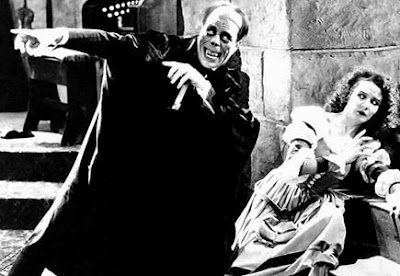
Director: Paul Solet
Starring: Jordan Ladd, Samantha Ferris, Gabrielle Rose
Ah, the joys of motherhood when your baby is undead and wants to gorge herself on your blood. Such is the situation that Maddy (Jordan Ladd) finds herself in in Paul Solet’s Grace, a film about the horrors of maternity, veganism, and holistic medicine. It’s gory and terrifying to be sure, but when the bloodletting is over, just what was the point of all that?
The film begins with an ordinary picture of horror: dinner with the in-laws. Michael (Steven Park) and Maddy quietly and politely endure the derision of his mother, Vivian (Gabrielle Rose), who dislikes the vegan meal that Maddy has prepared specifically, and dislikes Maddy as a person in general. She clearly thinks Maddy is an idiot and worries for the wellbeing of the child that Maddy is currently carrying, especially when she learns that Maddy plans to give birth with the aid of a midwife rather than go to a hospital. Michael is supportive of Maddy’s decision, but then he also doesn’t know that Patricia (Samantha Ferris), the mid-wife she’s chosen, is also her ex-lover.
The story dispatches with Michael quickly, killing him in a car accident that also kills the baby. Maddy decides to carry it to term anyway, giving birth to a dead baby who miraculously comes back to life. But there’s something very wrong with the baby, named Grace, who attracts scores of flies, never eats, and seems to crave blood. Maddy tries to satiate Grace’s appetite by buying raw meat and draining the blood into a bottle, but it’s Maddy’s blood that Grace wants, and Maddy eventually submits to this torture. Meanwhile, Vivian, who is sexually obsessed with the idea of motherhood, begins making plans to get Grace for herself and enlists Dr. Sohn (Malcolm Stewart) to help her prove that Maddy is unfit.
I have to confess that I don’t entirely know what to make of this film. It seems to be, amongst other things, an indictment of “mommy culture.” Certainly it is critical of Vivian’s “don’t cut the cord” style of parenting and her need to maintain her status as a mother – in a culture that values youth (and the implicit fertility thereof) above all else, to be a woman who can no longer give birth is to be irrelevant – but what about Maddy? Vivian smothers and dominates while Maddy surrenders, allowing herself to be devoured by her child. Both women have embraced their roles as mothers to unhealthy extremes. The first shot of the film is of Maddy and Michael having sex. She seems disengaged from the act but later (and alone) seems rapt at the idea that they might have conceived. She’s similarly ambivalent about her past relationship with Patricia, which suggests that her sexuality – not unlike that of her mother-in-law – is tied exclusively to the concept of motherhood. Maddy and Vivian are women who exist solely to be mothers, which the film sees as dangerous.
As for how it's made, it has a low budget look and the acting is sometimes suspect, but for the most part it's quite solidly made. It's fairly gory but at least there's a purpose to the gore, even if (as I've said) I'm not 100% sure what point the film is trying to make. I'm willing to concede that the murkiness of the film's message might be a failure of mine as a viewer, and I'm more than willing to give the film credit for having a brain behind it rather than being just an assembly line of mindless horrors. I also appreciate that it's free of the kind of aggressive misogyny so often found in horror movies. I can't imagine that I'll watch it again since I'm not big on gore, but I'm glad that I saw it at least once.












